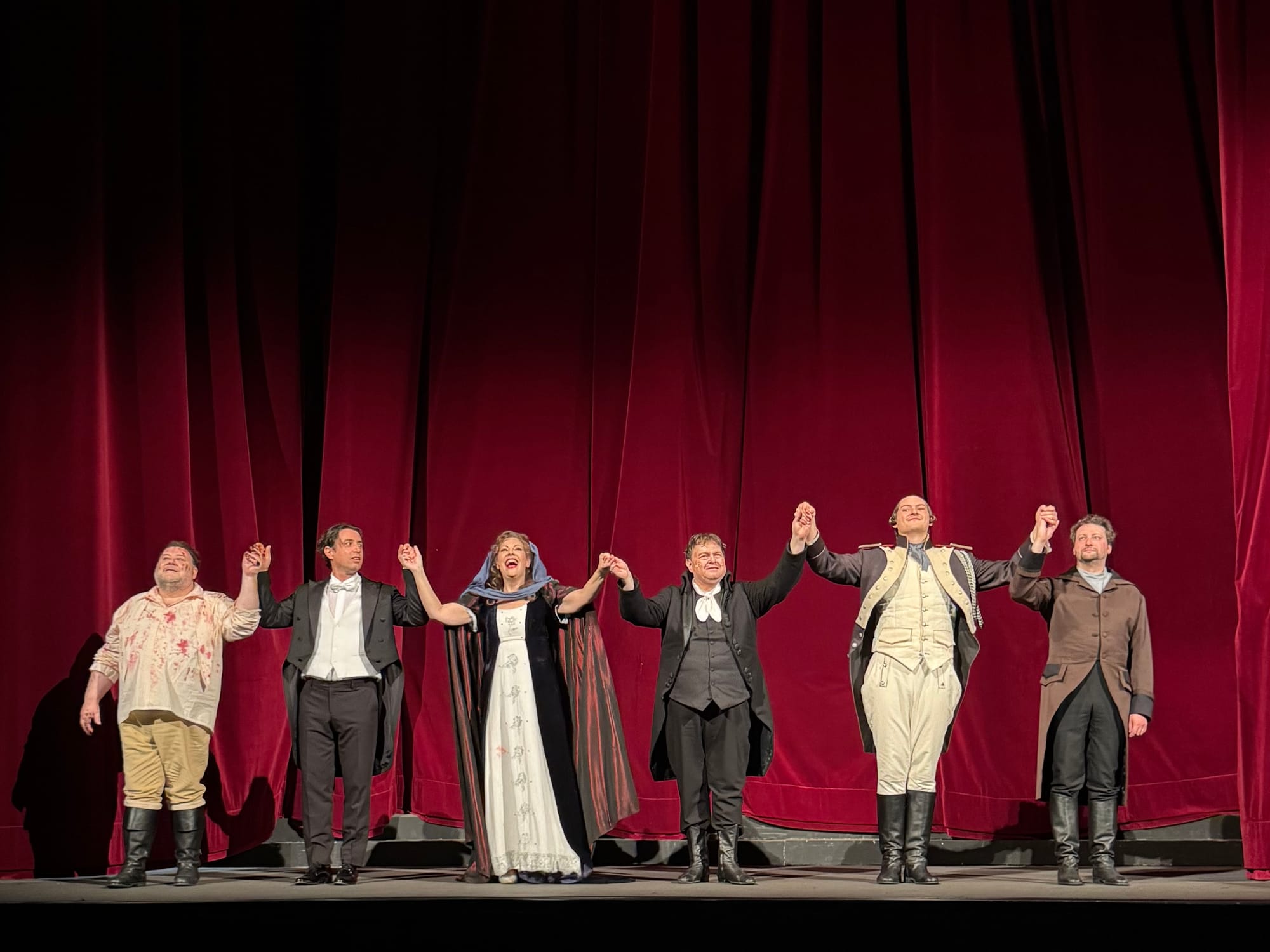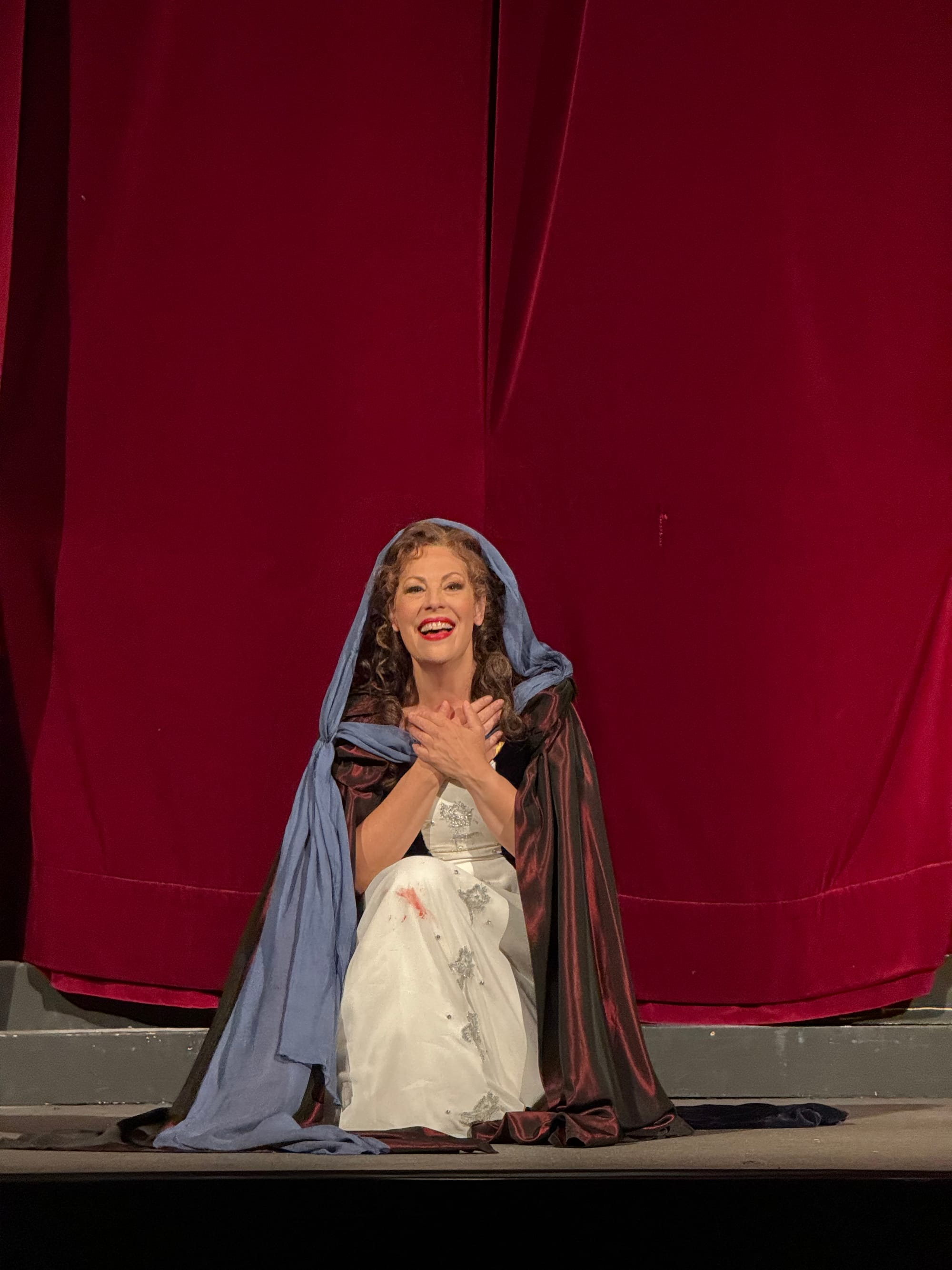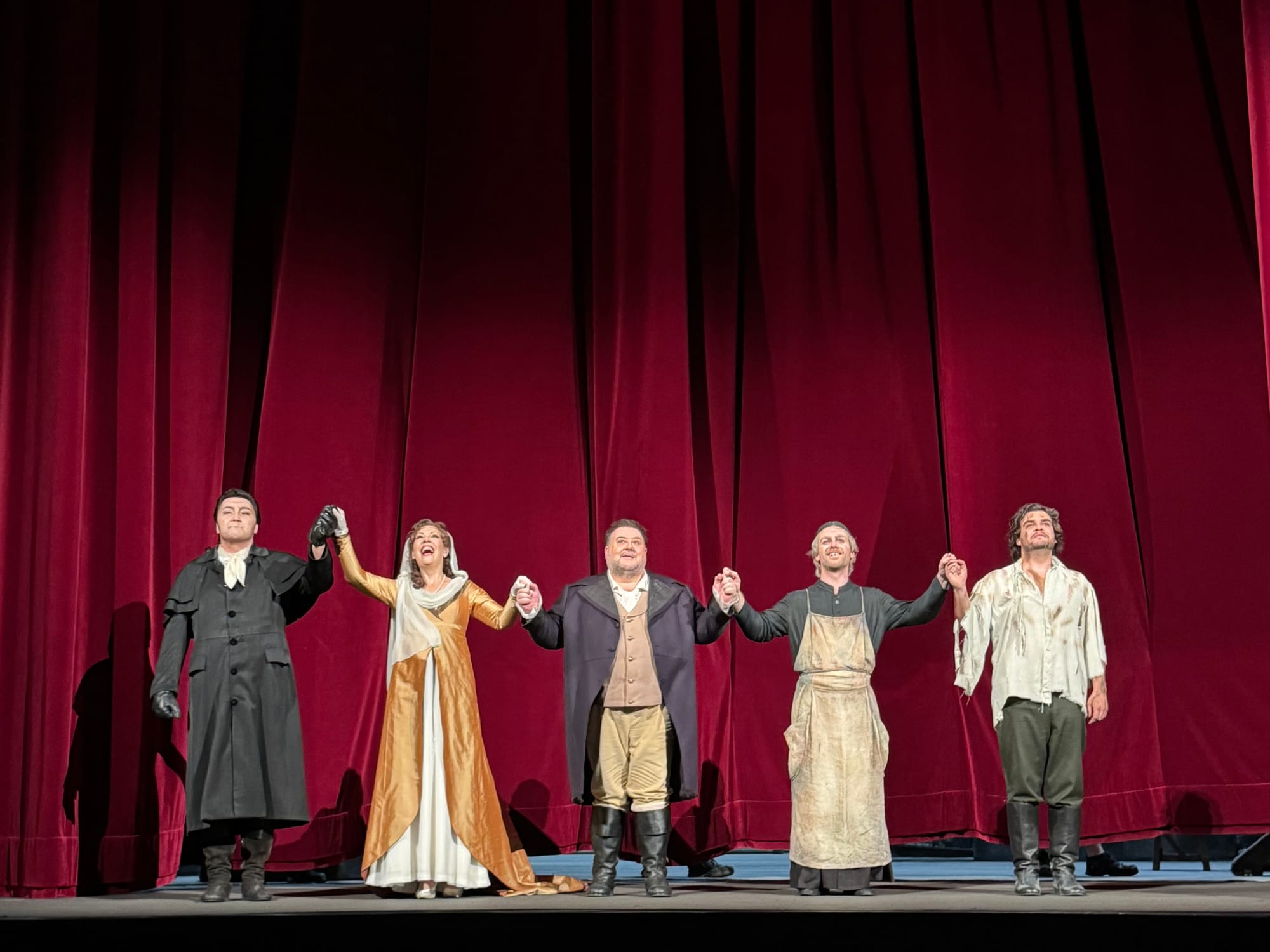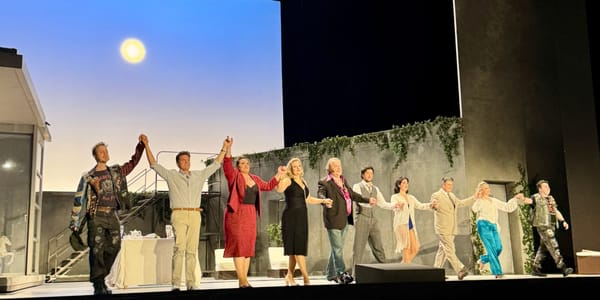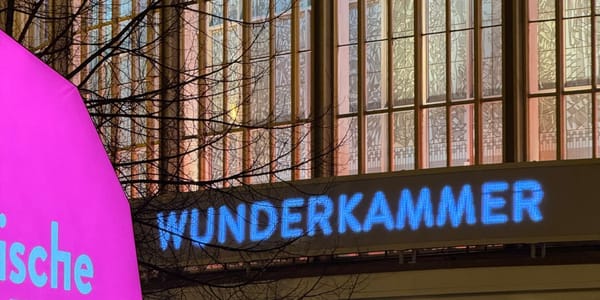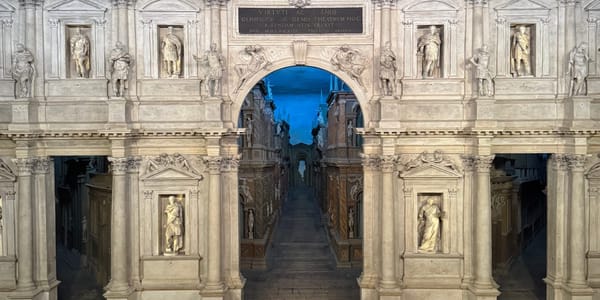Tosca at Deutsche Oper Berlin (2025)
Sondra Radvanovsky’s Tosca is heartbreakingly human—playful, vulnerable, and losing her faith—breathing new soul into a timeless, tragic role.
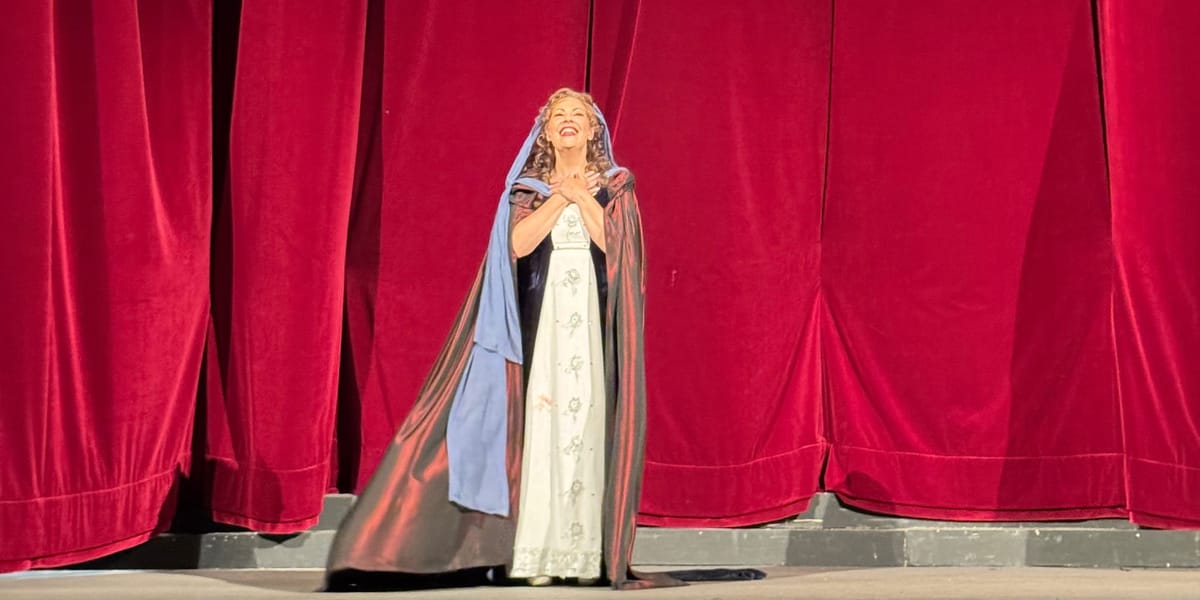
🎭 Tosca
🎶 Giacomo Puccini, 1900
💭 Boleslaw Barlog, 1969
🏛️ Deutsche Oper Berlin
🗓️ 19.06.2025
“WARTET NICHT ALLES NUR LIEBESTRUNKEN AUF DIE SONNE?“
I’ve seen Tosca more times than I can count, in wildly different productions across the years. And yet, somehow, each time I return to it, something new emerges—some fresh insight into the characters, the music, or the tightly wound dynamics that propel the drama forward.
This was my fourth time seeing the iconic 1969 Barlog production at Deutsche Oper, a staging that among Berlin audiences has earned a near-mythical status with its classical rigor and cinematic precision. But what made this particular performance revelatory was Sondra Radvanovsky’s Tosca—an interpretation that illuminated entirely new dimensions of the character for me.

We’re used to seeing Tosca as a tempest: passionate, impulsive, jealous. Sometimes, especially in more traditional readings, she risks being flattened into the trope of the “hysterical woman”—a fiery bundle of unchecked emotion. But Radvanovsky offered something far more complex: a Tosca who was not just emotional but also self-aware and disarmingly playful. Her Act I flirtation with Cavaradossi had a teasing quality, as if she herself recognized the absurdity of asking him to repaint the Madonna’s eyes. And while the jealousy was still there, it came laced with vulnerability and self-deprecation, grounded in the kind of emotional texture anyone familiar with anxious attachment will instantly recognize.
This shift in tone has profound consequences. It doesn’t just make Tosca more relatable—it grants her a modernity and emotional sophistication that are too often overshadowed by her dramatic outbursts. Her pain isn’t theatrical; it’s human. And yet, this subtlety seemed lost on much of the audience, who still chuckled at the usual “jealous Tosca” moments, as if watching a stock character perform familiar beats. I was reminded of taking a friend—staunchly progressive, feminist, and a novice to opera—to her first Tosca years ago in Hamburg. She left frustrated by what she saw as a regressive caricature: yet another woman undone by jealousy. Now, I wish she’d seen Radvanovsky that night instead.
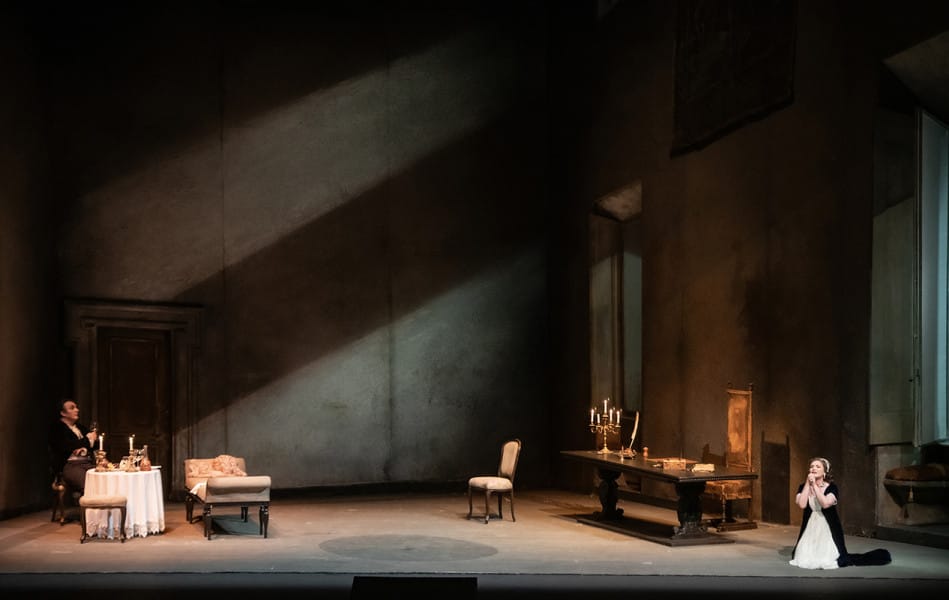
But the most powerful transformation in this performance came not in how Tosca related to her lover, but in how she related to her faith. At the opera’s start, Tosca is deeply devout—her Catholicism not just a social marker but a moral compass, a source of identity. By Act II, during the hall-of-fame “Vissi d’arte,” she’s still clinging to that belief system, pleading with a God she’s trusted all her life. But in this production, and through Radvanovsky’s subtle expressions, we watch her faith begin to fracture.
After she kills Scarpia, she paces the room, visibly shaken. Then she pauses in front of a Madonna painting; her gaze lingers. Shock becomes doubt, and doubt hardens into something like resentment. In that moment, Tosca seems to ask: Why? Why, after a life of devotion, has it come to this? Why, God, have you forsaken me? And yet, even in the aftermath, we see her return—perhaps out of habit, or fear, or both. She crosses herself before Scarpia’s body, and again, just before her final leap, with that chilling line: “Scarpia, we will meet again before God!”
Seen in this light, Tosca is no longer a simple tragic heroine. She is a woman pushed to the edge—emotionally, morally, spiritually. Her arc is not just one of love and betrayal, but of existential reckoning. In Radvanovsky’s hands, she emerges as one of the more complex and ambivalent heroines in opera: not merely jealous or passionate, but richly human—capable of humor, doubt, devotion, and despair. And maybe that’s what keeps me coming back to Tosca again and again: the possibility that, with the right performer, even a character I thought I knew can still surprise me.
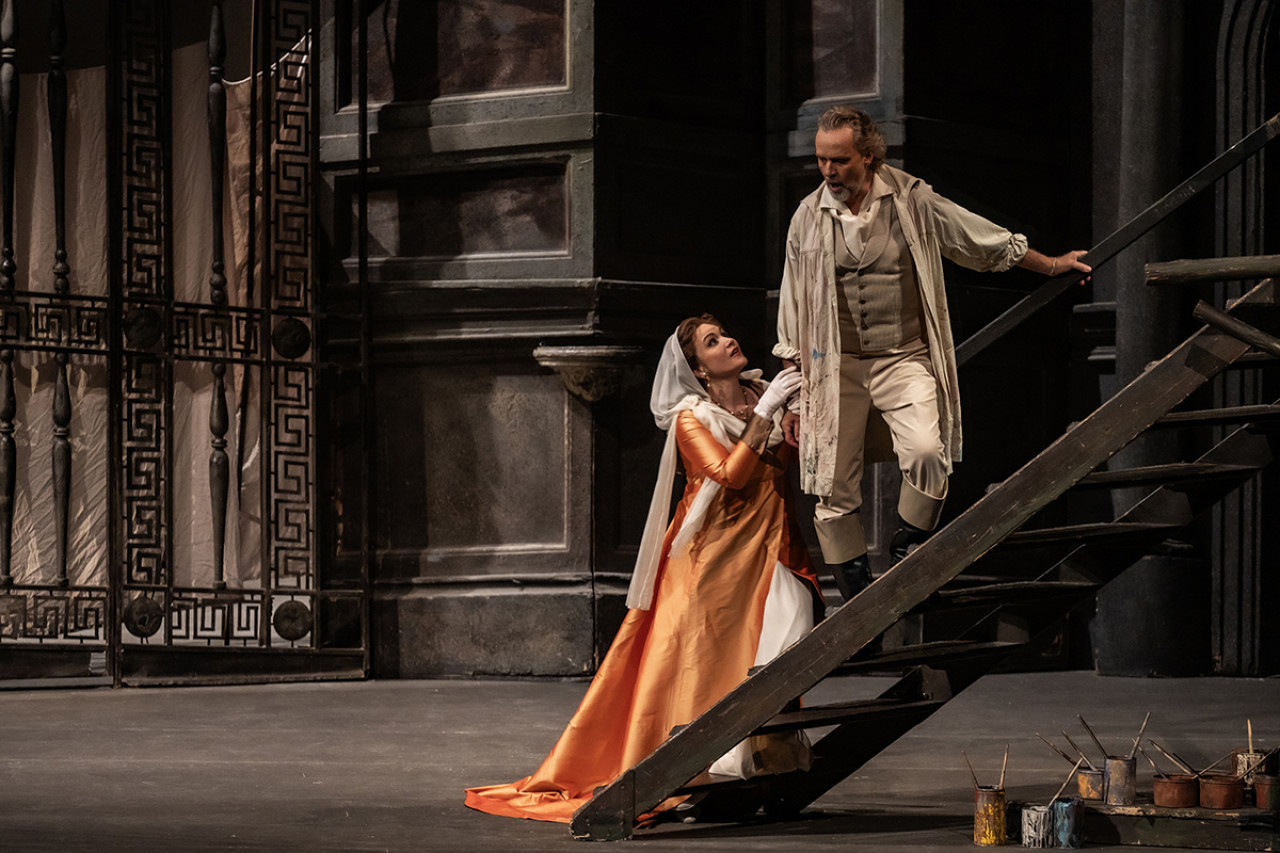
Cast - 19.06.2025
Conductor Valerio Galli
Director Boleslaw Barlog
Stage-design, Costume-design Filippo Sanjust
Chorus Director Thomas Richter
Children's Chorus Christian Lindhorst
Tosca Sondra Radvanovsky
Mario Cavaradossi Fabio Sartori
Scarpia Ariunbaatar Ganbaatar
Angelotti Stephen Marsh
Sacristan Padraic Rowan
Spoletta Jörg Schörner
Sciarrone Jared Werlein
Turnkey Joel Allison
Chorus Kinderchor der Deutschen Oper Berlin
Chorus Chor der Deutschen Oper Berlin
Orchestra Orchester der Deutschen Oper Berlin
